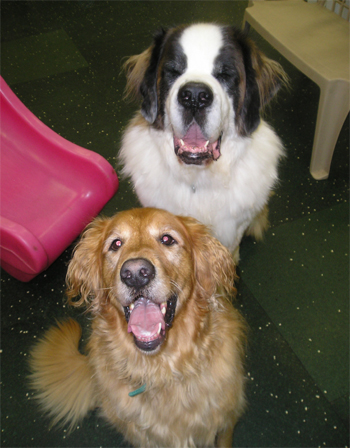RIGHTING WRITING
Tom Colville, DVM, MSc
Veterinary Technology Program
Animal Sciences Department
North Dakota State University
Some personal observations about
writing:
1. Writing is important. Communicating is an important part
of every profession. To a great extent people draw conclusions about
other peoples’ competence, intelligence and suitability for various
activities based on communications skills. Written communications
are particularly important because they are down on paper, and are
therefore more lasting than oral communications.
2. Writing is not easy. Like many worthwhile things in life,
writing takes effort. Its net effect is often related to the amount
of effort invested in it. Even experienced writers struggle with
their task at times.
3. Writing is a process not a product. Writing is not a
“paper” or an “essay” or a “theme.” It is what goes on between the
blank page and the finished product.
4. Writing can be enjoyable. Writing is an expression of
self – a very personal process. It can be an exhilarating experience
to take a jumble of ideas and express them on paper in a way that is
pleasing and/or informative to someone else.
5. Computers make writing easier. Writing usually involves
revision of preliminary drafts. Computers make that a piece of cake,
but that ease can be a double-edged sword. It can also tempt us to
cut and paste things from other sources, such as the web, and call
them ours. See “plagiarism” below.
Getting started
Identify
your topic.
This may be your choice, or it may be assigned.
Identify
your audience.
Who is your writing intended for? At what level, and with what
vocabulary, should your paper be written in order to be
understandable? This is a very important, and often overlooked, step
in the writing process.
Relate
to the topic.
What importance does it have for you? Draw from your past and
present experiences and activities if possible, or try to project
the significance it might have in your personal and/or professional
future. The topic will be much easier to deal with if you have some
“ownership” of it.
Gather information
on the topic, but don’t try to organize it yet. This is just a
fact-gathering stage. Use any and all resources that might be of
help – class notes, books, journals, magazines, the web, etc. A word
of caution about information from internet sources – just because it
is on the web, or you saw it in Facebook doesn’t make it true.
Examine the source of the information in web-based sources. There
are a lot of opinions out there masquerading as facts.
Make
lists
of significant information/facts without really trying to organize
them.
Group
information/facts
that seem logically related. Many things will seem to fit together.
They will form the basis for paragraphs and/or sections of the
paper.
Outline
the grouped information starting with the main points, then sub
points, etc. This will start to give some early semblance of
organization to the project.
The first draft
Assembling
the first draft
is among the most important parts of the process of writing. The
first draft is the foundation on which the final work will be built.
Approach the first draft as a starting point, not as a finished
product.
Set
aside a block of time
to start writing. Make it long enough to get something useful done,
but don’t make it unreasonable. (An all-nighter is generally not
emotionally satisfying.)
Create
a comfortable environment
both physically and emotionally. It might involve a comfortable
chair, a certain kind of music, or a favorite food or drink. Within
reason, give yourself every opportunity to feel comfortable,
creative and ready to write. Fight the urge to procrastinate,
though.
If
you get blocked, do something else
for a while. Sometimes the words just don’t come to you. Stop
writing for a while and do something entirely unrelated. Your brain
will continue working on the process and you will often be able to
make better progress when you return to the project.
Begin
writing in sections,
but not necessarily in the order the sections will appear in the
finished paper. Try to avoid extensive revising and/or correcting as
you write. Just let the words flow onto the paper (or computer
screen). You can come back later and tidy up. Too much attention to
details of spelling, etc. at this point can obstruct the flow of
thoughts and ideas.
Assemble
the first draft
from the written sections. (Aren’t computers wonderful?)
Revising/editing
Print
the paper out double-spaced.
It is often easier to revise and edit on a printed page than on a
computer screen. Draw arrows, underline, make notes in the margins,
cross things out, insert new words, and generally hack and slash as
needed to make it read easier and better.
Grammar
are important.
Doesn’t that look dumb? Here’s where you can put all those English
classes you have taken to work. Grammar and spelling problems make a
poor impression on a reader.
Read
the paper out loud to yourself.
Your ears will be helpful in identifying where changes might be
needed.
Give
the draft to someone else
whose judgment you trust for suggestions. Explain that this is a
preliminary draft and ask them to comment with that in mind. If
possible, have them read it once for grammar and spelling, and again
for content.
Set
the draft aside
for a while (hours or days), and then read through it with fresh
eyes. Make notes and corrections on the copy and revise it
accordingly. If there is time, set the revised draft aside for a
while again and repeat the process. It is human nature to see what
we want to see when we read something over and over in a
short period of time. We can read right over missing words or
punctuation, etc. Fresh eyes are more likely to see what is actually
there.
How
many drafts should you write?
This depends largely on time constraints. If time allows, at least 2
or 3 drafts will generally improve the paper greatly.
A word about plagiarism
Don’t!
Plagiarism is taking someone else’s writing and submitting it as
your own. It is a form of cheating, and, when detected, must be
reported to the Honor Commission of the College of Agriculture, Food
Systems and Natural Resources.
Accidental
plagiarism can be avoided
by being sure that everything you write is in your own words. Any
sentences or significant portions thereof that are taken
word-for-word from any of your sources must be placed in quotes with
credit given to the source. This can be done through footnotes, or
the relevant information can be placed in parentheses after the
quoted section. The best insurance against accidental plagiarism is
to use your own words to express your own ideas and your own
interpretations of other people’s material.
One last personal observation about
writing:
Good
writing takes time.
Last-minute, panic writing does not generally produce something that
is pleasing or useful to either the writer or the reader. The
process described above has proven useful for me as a writer. You
will note that it involves an investment of time, however. Plan your
writing far enough ahead that panic does not enter the picture.
Acknowledge the several steps that will be required and plan the
project accordingly. The specific project that you have to work on
is temporary, but you will be writing for the rest of your life.
Develop good habits and you will enjoy the process a lot more!





